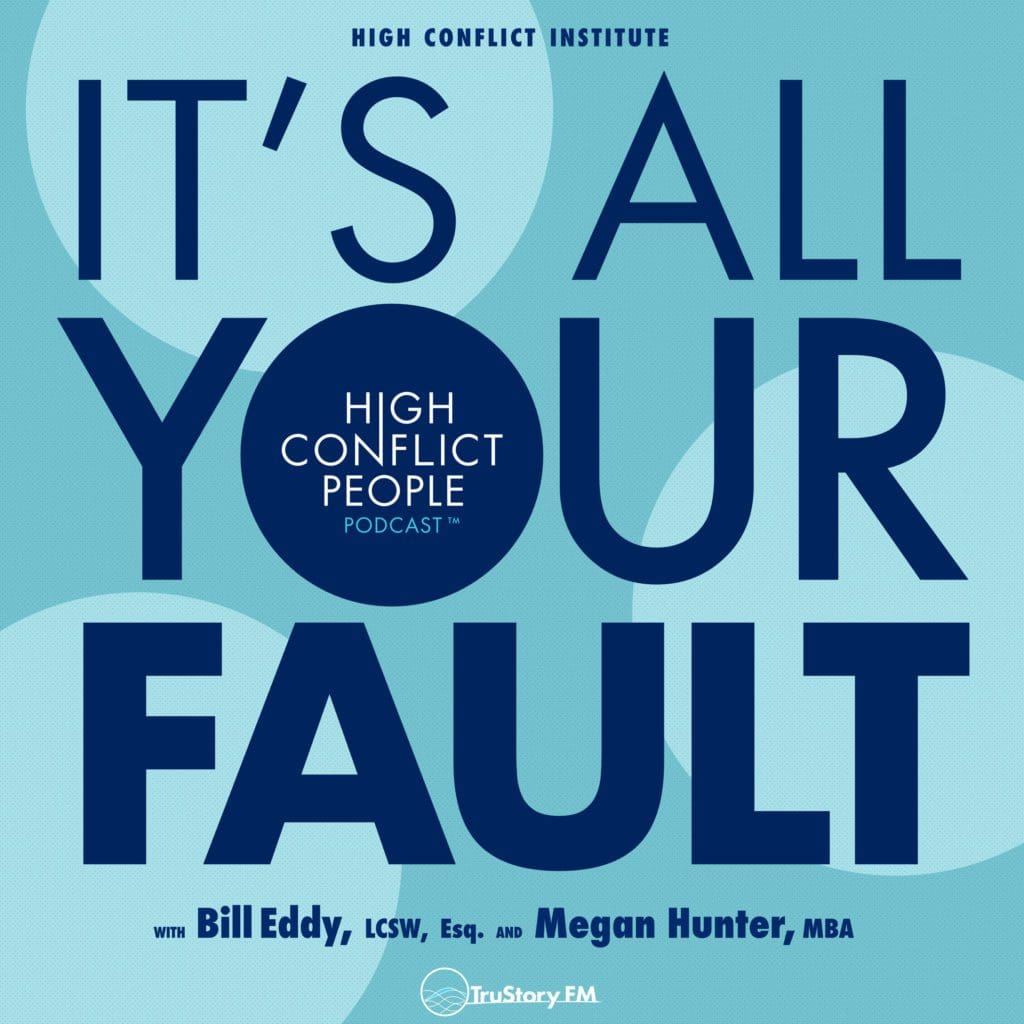Bill Eddy and Megan Hunter tackle an important but tricky topic in this episode – how to set healthy boundaries with others when tensions run high. Whether it’s a contentious divorce, difficult coworker, or suspected lies, Bill and Megan provide realistic examples and actionable advice to constructively handle high-conflict situations. Tune in to learn techniques to establish boundaries while remaining calm and keeping conflicts small. This episode delivers takeaways anyone can apply to enhance their most challenging relationships.
They provide tips across three common scenarios:
- Co-parenting after divorce: Look to standards or common practices as a starting point. Focus on protecting the children and not discussing certain topics in front of them. You can only control your own behavior – walk away if tensions escalate.
- Workplace conflicts: Practice using the BIF (brief, informative, friendly, firm) method in emails or conversations. Don’t engage in unnecessary battles – end conversations if needed.
- Suspected lies: Always consider three perspectives – it could be true, false, or somewhere in between. Don’t react emotionally or you may become a target of blame. Reality test tactfully if needed.
Bill and Megan stress practicing these techniques and finding simple but memorable phrases to use when setting boundaries. Their realistic examples and actionable advice provide takeaways anyone can apply to enhance their most challenging relationships.
Links & Other Notes
- LIVE LAB: 1:1 coaching to learn skills (setting limits, BIFF Responses, CalmB4Think)
- ARTICLE: 12 Tips for Co-Parent Boundaries
- ARTICLE: Need to Set Limits With a High Conflict Person? Give ‘Em Your EAR
- ARTICLE: 4 Ways to Set Limits at Work
- COURSE: Conflict Influencer™ Certification
- Our website: https://www.highconflictinstitute.com/
- Submit a Question for Bill and Megan
- All of our books can be found in our online store or anywhere books are sold, including as e-books.
- You can also find these show notes at our site as well.
Note: We are not diagnosing anyone in our discussions, merely discussing patterns of behavior.











